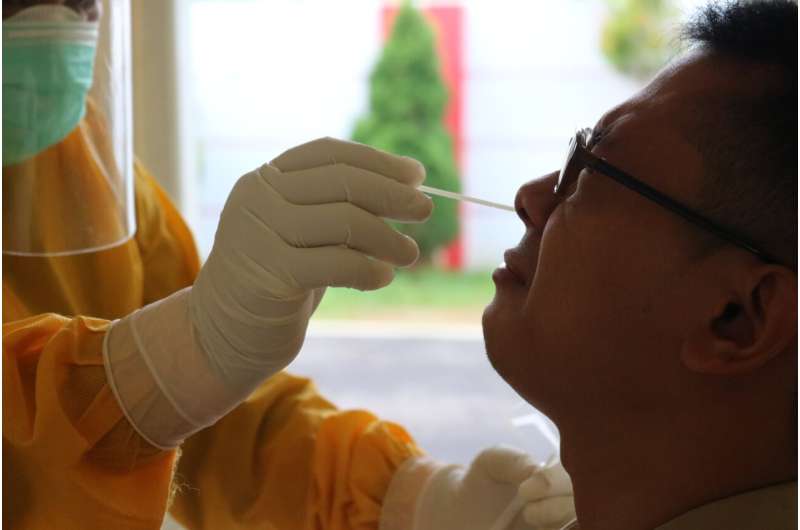Advanced Bioluminescence Diagnostic Tool Enhances Virus Detection with Superior Signal Longevity

Mass General Brigham unveils LUCAS, a revolutionary bioluminescent diagnostic tool that offers highly sensitive and long-lasting signals for rapid virus detection, facilitating early diagnosis and improved disease monitoring.
Researchers at Mass General Brigham have developed a groundbreaking diagnostic technology called the Luminescence CAscade-based Sensor (LUCAS), designed to significantly improve the detection of viruses in complex biological samples. This innovative tool generates bioluminescent signals that are 500 times more intense and last eight times longer than traditional methods, addressing key limitations in point-of-care diagnostics.
Unlike conventional diagnostics, which often struggle with low sensitivity and background noise, LUCAS employs a novel enzyme cascade involving luciferase and beta-galactosidase enzymes. This combination amplifies and extends the bioluminescent response by continuously releasing luciferin molecules, resulting in a robust and sustained light signal. As a result, LUCAS can detect viruses more reliably and rapidly.
The team evaluated LUCAS using 177 patient samples and 130 serum samples infected with pathogens such as SARS-CoV-2, HIV, HBV, and HCV. The system provided diagnostic results within 23 minutes with an accuracy exceeding 94%. Its portability and ease of use make it suitable for both high-resource and low-resource settings, potentially transforming point-of-care testing.
This technology addresses longstanding challenges faced by bioluminescence-based assays, such as photobleaching and phototoxicity, by utilizing natural enzymes that emit light in biological samples. The enhanced signals enable more precise detection, which could be instrumental in early diagnosis and monitoring of infectious diseases.
Looking forward, the researchers aim to expand LUCAS's capability to analyze multiple pathogens simultaneously and verify its effectiveness across various biological fluids. Moreover, in the context of ongoing biomarker discoveries for diseases like Alzheimer’s, LUCAS’s high sensitivity could facilitate early detection of a broad range of health conditions.
As Dr. Hadi Shafiee emphasized, this advancement signifies a major leap forward in virus sensing technology, potentially revolutionizing rapid diagnostics and personalized healthcare.
Stay Updated with Mia's Feed
Get the latest health & wellness insights delivered straight to your inbox.
Related Articles
Promising Results in First Human Trial of Targeted Therapy for Relapsed Small Cell Lung Cancer
A Phase I study showcases promising safety and efficacy data of SHR-4849, a targeted antibody-drug conjugate, in relapsed small cell lung cancer patients, paving the way for further clinical development.
Breakthrough in Asthma Treatment: New Target Revealed to Reverse Lung Damage
Researchers have identified a new target that could enable reversing lung scarring in severe asthma, potentially transforming future treatment options including tissue repair and disease progression prevention.
Communication Key to Women's Experiences with Fundal Pressure During Childbirth
A groundbreaking study shows that effective communication significantly influences women's experiences of fundal pressure during childbirth, emphasizing the importance of informed consent and respectful care in obstetrics.
Understanding Why Pupils Dilate When We're Aroused: Insights from Anatomy Experts
Explore the science behind pupil dilation during arousal and emotional responses, including the role of the autonomic nervous system and social bonding cues.



